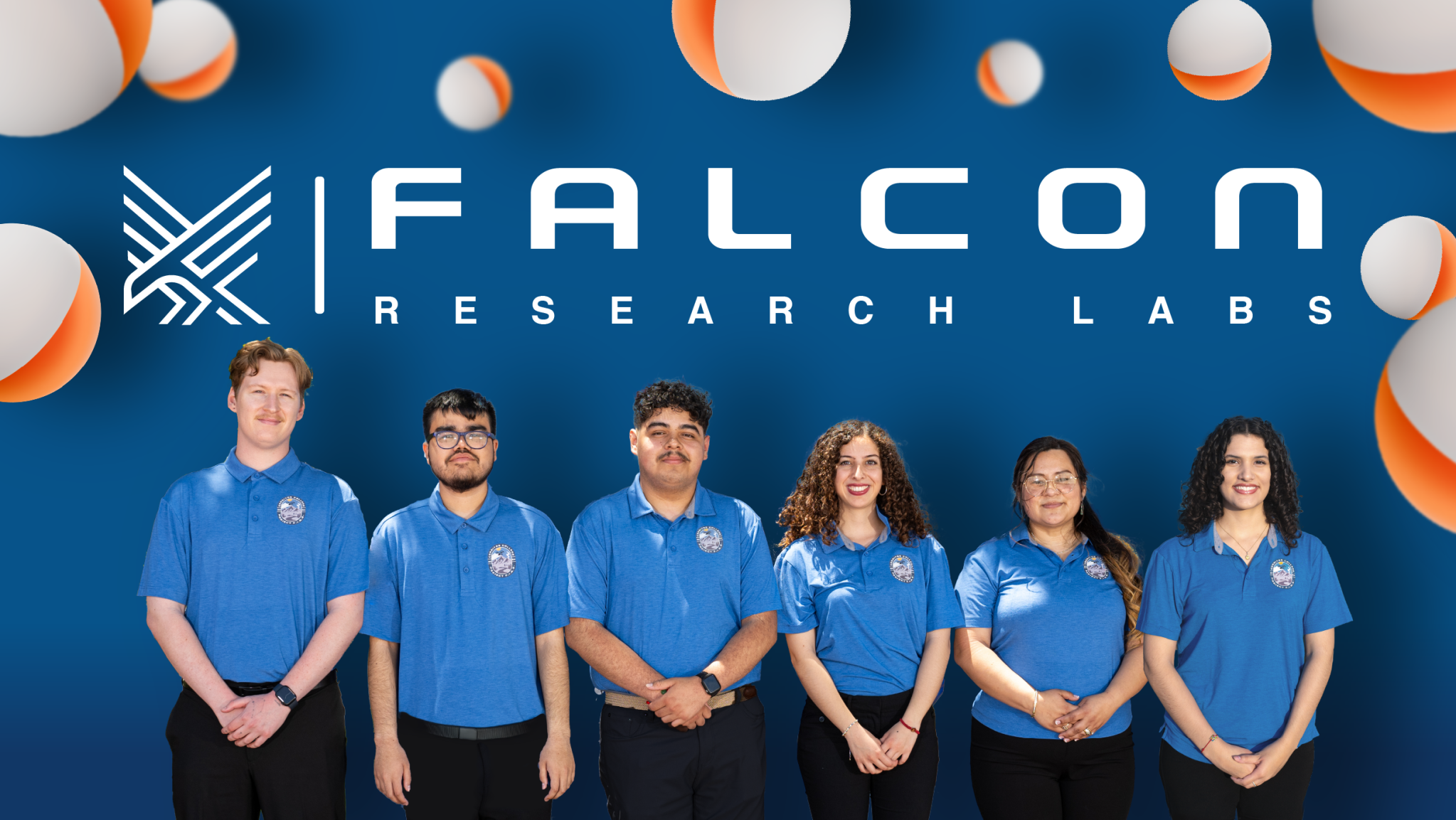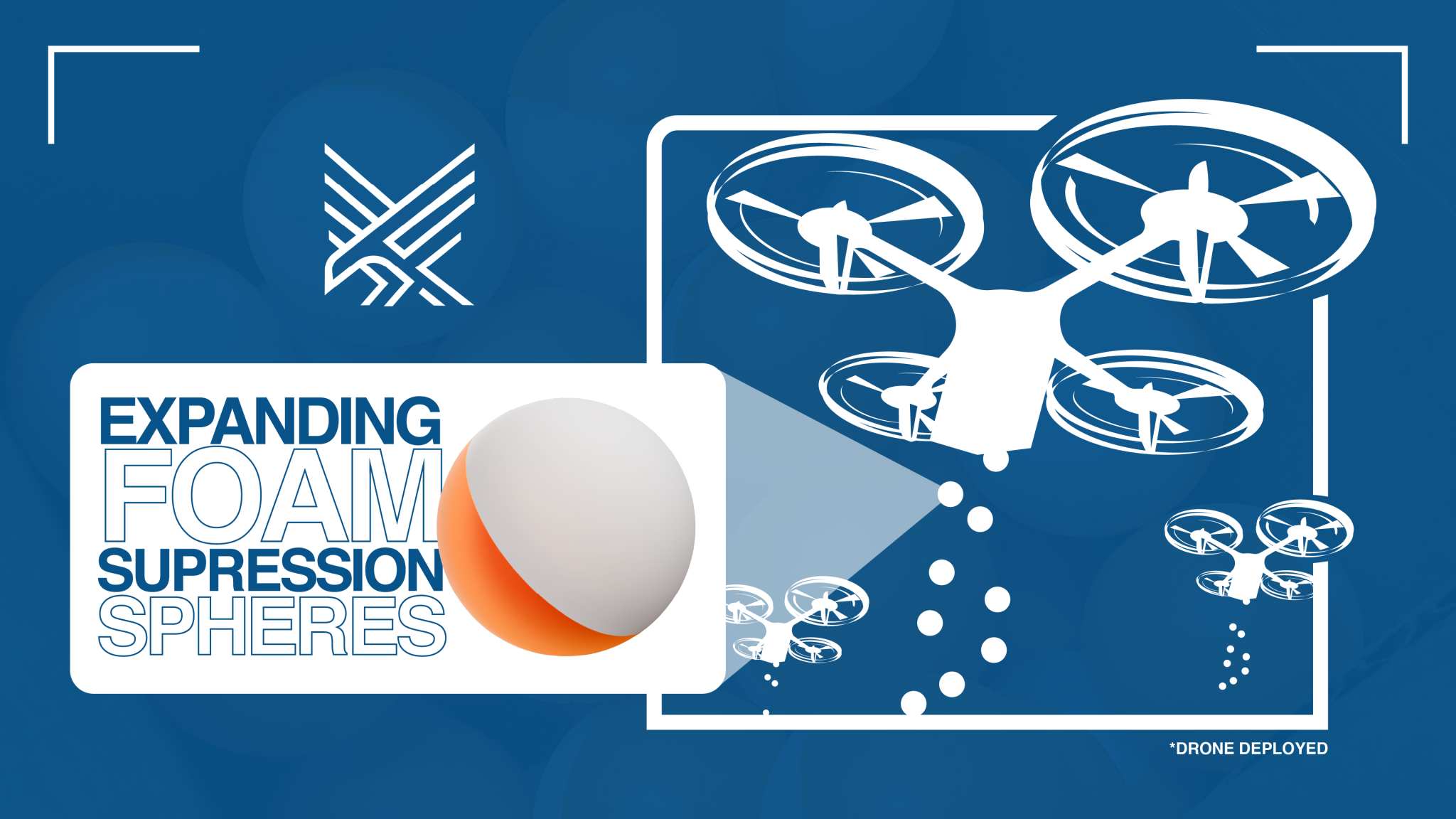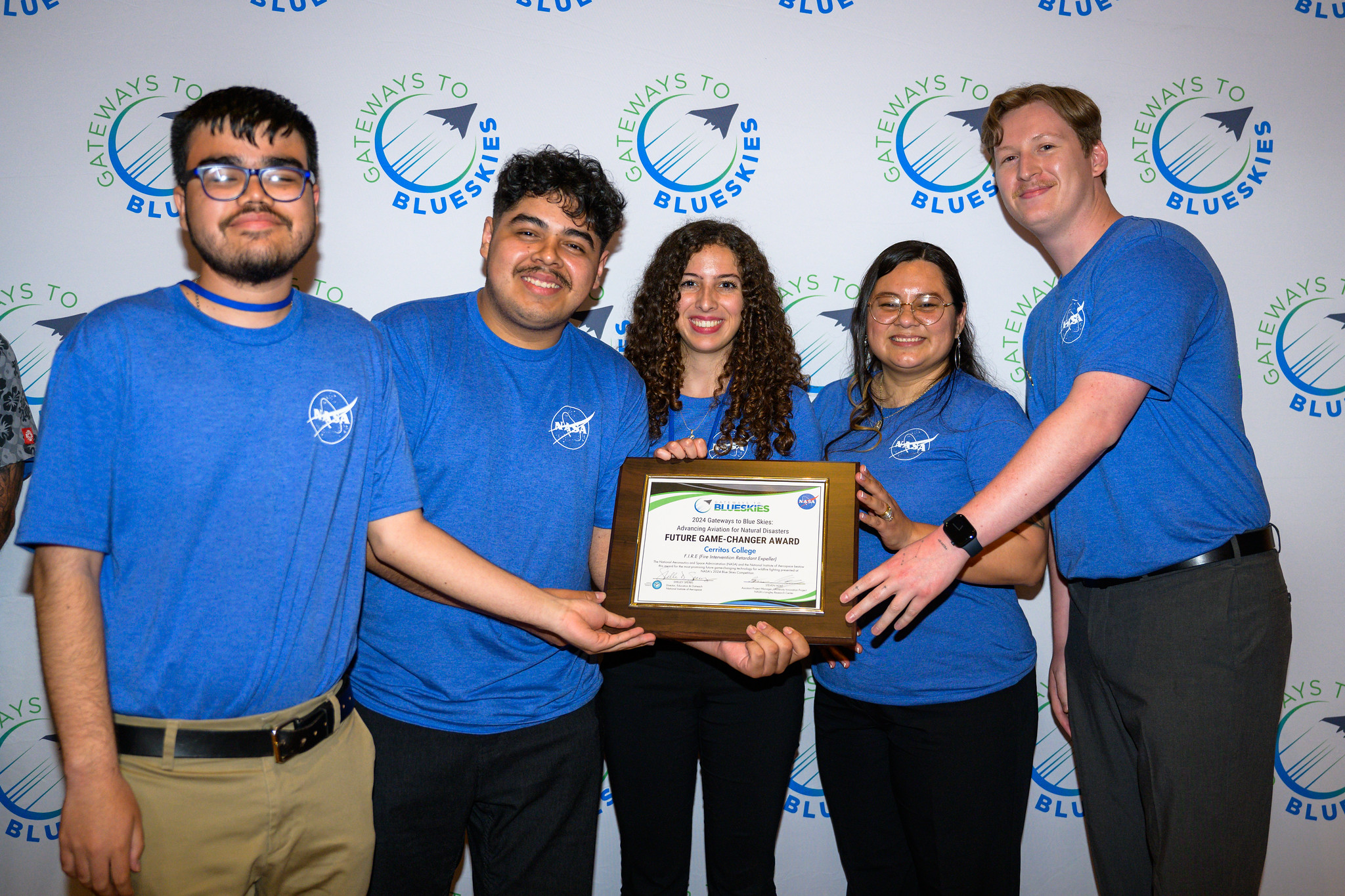4 min read

Great ideas, and the talent and passion that bring them to life, can be found anywhere.
In that spirit, NASA's University Student Research Challenge (USRC) in 2024 selected its first group of community college students to contribute original research to the agency's transformative vision for 21st century aviation.
The student-led group, from Cerritos Community College in California, is researching a new method of safely extinguishing wildfires using eco-friendly pellets dropped from uncrewed drones they call Project F.I.R.E. (Fire Intervention Retardant Expeller).
"Wildfires are a major problem we're facing today," said Angel Ortega, project technical director and lead research engineer for Project F.I.R.E. at Cerritos Community College. "The goal of our research is to demonstrate that our prototype drone with biodegradable fire retardant can successfully put out a controlled fire."
A Community College First
Until now, USRC has only selected participants from traditional four-year institutions, compared to a two-year community college. This award exemplifies the activity's goal of giving all of tomorrow's aeronautical innovators a shot at NASA support for their research ideas.
"The University Innovation (UI) project provides a number of different avenues for students to contribute to aeronautics," said Steven Holz, who manages the USRC award process. "All of the opportunities are different and help build knowledge and skills that would be advantageous to those wanting to continue working on UI opportunities or within NASA."
This award is one of two from NASA's USRC selected in 2024. The team received the USRC award prior to the devastating Los Angeles fires of January 2025.
"Our thoughts are with everyone affected by this tragedy," members of the team said in a statement. "As a team, we are deeply committed to advancing innovative solutions to enhance safety and resilience, working toward a future where communities are better protected against such disasters."
Innovating a Solution
The six team members of Project F.I.R.E. are driven by an ethic of public service. As fires continue to affect communities in their native southern California, they are applying their skills to finding a way to help.
"We want to get the public inspired that there are possible solutions at hand," Ortega said. "And the work we're doing now can hopefully build towards that bigger goal of a widespread solution."
The research they are pursuing involves dropping biodegradable pellets into fires from uncrewed, autonomous drones. The pellets, upon reaching the ground, combine chemical ingredients which create a foamlike solution of fire retardant that will not contaminate the environment after the fire is extinguished.

The team is keen to support firefighters and wildland fire managers and keep them safe while managing these natural disasters. The group has met with firefighters, discussed the idea with them, and received useful feedback on how to make the technology work best in the field.
Though the group is only at the outset of the research, their idea has existed for longer.
Blue Skies Forever
Prior to applying for a USRC, Project F.I.R.E. also presented at NASA's 2024 Gateway to Blue Skies competition, in which they won the "Future Game-Changer" award.
Through Gateway to Blue Skies, NASA challenges college students to research climate-friendly technologies and applications related to the future of aviation and present them at an annual forum.
Following Project F.I.R.E.'s participation in the forum, they applied for a USRC grant to begin turning their vision into reality.
"Our experience with NASA has been incredibly supportive and inspiring," said Logan Stahl, the project's operations director. "We thought competing against some of the other schools would be intimidating, but the experience we've had is the complete opposite. Everyone was very welcoming, and the NASA representatives communicated with us and asked questions."
The USRC support will allow the team to build on their earlier foundations, they said.
"Because Gateway to Blue Skies is more conceptual, it let us bring our idea to the table. Now through USRC, we can start building hands-on and make our idea come to life," said Larisa Mayoral, chemical engineer and laboratory operations manager.

The team expressed gratitude, speaking as community college students, for their ability to participate in and contribute research at a level that competes with top-brass universities.
"We're very appreciative of our college and NASA providing us this opportunity," said Paola Mayoral Jimenez, laboratory coordinator and safety manager. "By doing this project, we hope to shine a light on community colleges, their students, and what they have to offer."
Complete details on USRC awardees and solicitations, such as what to include in a proposal and how to submit it, are available on the NASA Aeronautics Research Mission Directorate solicitation page.






